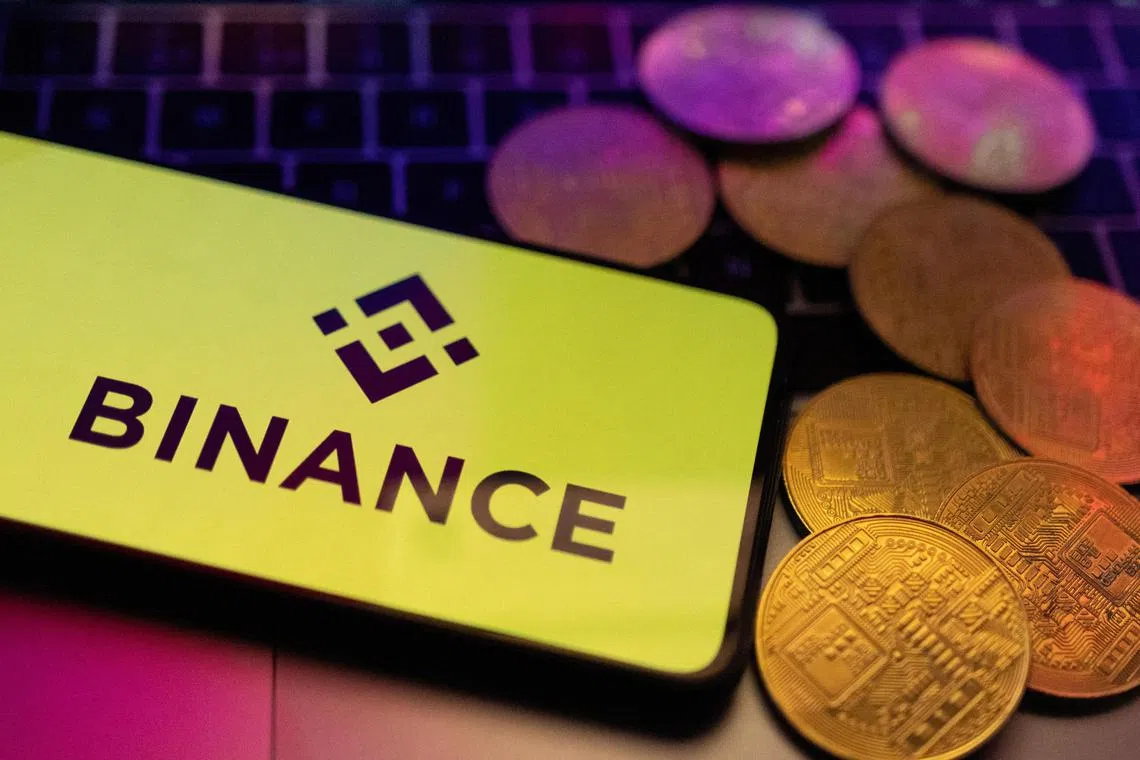Binance.US, regulator SEC agree to work on deal to avoid full asset freeze
Sign up now: Get ST's newsletters delivered to your inbox

The moves against Binance by the US Securities and Exchange Commission are part of an increasingly aggressive regulatory crackdown on the crypto industry.
PHOTO: REUTERS
WASHINGTON – Binance.US and the US Securities and Exchange Commission (SEC) have agreed to work on a deal that avoids a total asset freeze at the cryptocurrency trading platform, which the regulator has accused of operating illegally.
US District Judge Amy Berman Jackson said at a hearing in Washington on Tuesday that the two sides “aren’t that far apart” on ways to protect billions of dollars in customer funds without shutting the exchange
She referred them to a magistrate judge to work on a compromise agreement.
“The nitty-gritty of it is better handled by you than by me,” Judge Jackson said, and ordered them to submit a status update by Thursday.
The judge said if a deal is struck, she would no longer need to rule on the SEC’s request for a temporary restraining order.
Last week, the SEC charged Binance and its US affiliate with mishandling customers’ deposits and lying to regulators.
It also sought to freeze the company’s US assets, a move that Binance claimed would force it to shut down in the United States.
At the hearing, Judge Jackson also expressed scepticism about the SEC’s use of its enforcement powers to regulate the crypto world, calling it “inefficient and cumbersome”.
The moves against Binance are part of an increasingly aggressive regulatory crackdown on the crypto industry.
A day after filing the Binance lawsuit, the SEC also sued Coinbase, the largest US exchange, for dealing in unlicensed securities.
That one-two punch rattled the industry, raising the spectre of a years-long legal battle over the future of crypto in the US.
Scrutiny has increased since November, when the FTX exchange collapsed overnight, leading to criminal charges against its founder Sam Bankman-Fried.
The effort to freeze Binance’s US assets nonetheless stands out as one of the SEC’s most aggressive steps so far against crypto companies.
While previous actions have forced smaller crypto firms to pay fines or discontinue certain products, a victory over Binance could drive the world’s largest exchange out of the country entirely, accelerating a growing exodus of companies.
In court filings on Monday, lawyers for Binance’s American arm, Binance.US, argued that the SEC’s proposed asset freeze would mean the company could not pay vendors, employees and suppliers, causing its operations to “quickly grind to a halt”.
“We’re not willing to accept a death penalty eight days into the case,” a lawyer for Binance.US said at the hearing.
University of Richmond School of Law professor Carl Tobias said the request for an asset freeze may have been intended to send a message to the broader crypto industry.
“It’s part of reasserting the SEC’s authority to regulate in this area,” he said.
Binance.US oversees US$2.2 billion (S$2.96 billion) in crypto holdings, according to the SEC.
The freeze would have no effect on the company’s larger global exchange, which is already prohibited from operating in the US.
Last week, the SEC disclosed that it has been investigating Binance since the summer of 2020.
A few months ago, regulators informed Binance that it was considering filing an enforcement action against the company.
After the SEC sued Binance last week, Binance.US said its banking partners would no longer provide crucial payment channels,
The SEC said in court papers that none of its moves should have come as a surprise to Binance and its chief executive Zhao Changpeng, who is also a target of the lawsuit.
“Defendants knew that their conduct with respect to US investors was illegal and risked US government enforcement actions,” the SEC said in a filing. “Instead of ceasing such illegal activity, Zhao and Binance doubled down.” NYTIMES


